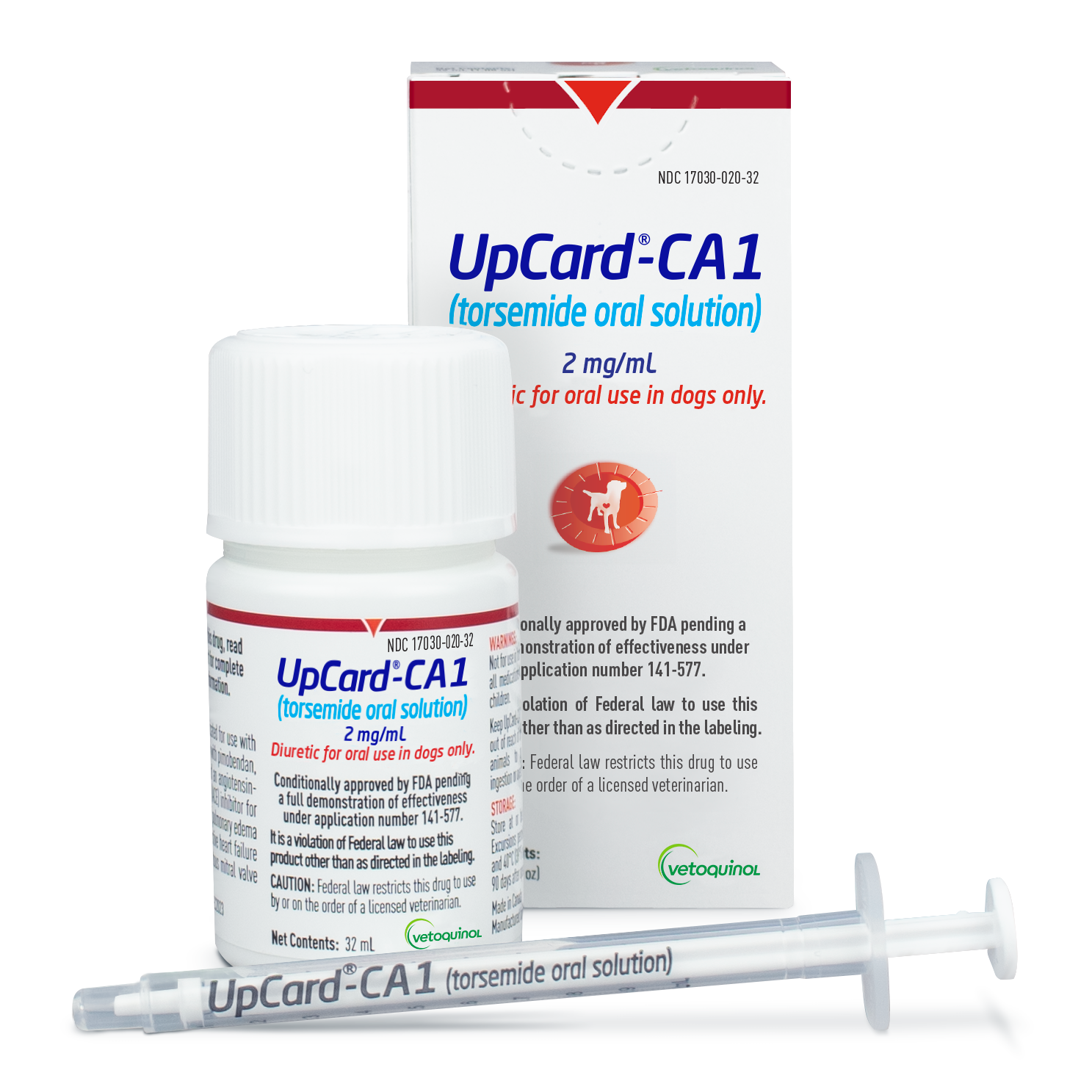Prevalence of Myxomatous Mitral Valve Disease (MMVD).
Approximately 10% of dogs visiting general veterinary practices have heart disease.1 MMVD is the most common cause of heart disease in dogs, accounting for approximately 75% of cases.1
While myxomatous mitral valve disease affects the left atrioventricular (mitral) valve, the tricuspid valve also has myxomatous disease in 30% of the cases.1
As MMVD progresses, the heart’s compensatory mechanisms may no longer be sufficient to maintain normal circulation. This leads to the development of congestive heart failure (CHF), a complex clinical syndrome characterized by fluid accumulation in the lungs (pulmonary edema), chest cavity (pleural effusion), or abdomen (ascites).
The most common clinical signs of CHF in dogs include coughing, difficulty breathing, exercise intolerance, and weakness.2
Treatment typically involves diuretics to reduce fluid accumulation, ACE inhibitors to reduce blood pressure and improve heart function, and inodilators like pimobendan to enhance cardiac contractility and reduce workload.3

Diuretics are a cornerstone of treatment for congestive heart failure (CHF).
Diuretics, particularly loop diuretics like furosemide and torsemide, work by alleviating congestion through increasing urine and sodium excretion.3
However, as CHF progresses, some dogs may develop diuretic resistance, necessitating higher doses or alternative treatment strategies. And because CHF is a progressive disease with no cure, once treatment is started it requires a lifelong commitment by pet owners.
UpCard-CA1 (torsemide oral solution) can provide effective diuresis while improving owner compliance2 through once daily dosing and can help veterinarians manage diuretic resistance.
UpCard-CA1 is conditionally approved by the FDA pending a full demonstration of effectiveness under application number 141-577. It is a violation of Federal law to use this product other than as directed in the labeling.
IMPORTANT SAFETY INFORMATION: UpCard-CA1 is for use in dogs only. Do not administer to dogs with renal failure, anuria, severe dehydration, hypovolemia, or hypotension. Do not administer UpCard-CA1 concomitantly with other loop diuretics or to dogs with hypersensitivity to the active substance, torsemide, or to any of the excipients. UpCard-CA1 should be used only in stable dogs with congestive heart failure caused by MMVD which has been diagnosed by means of a comprehensive physical and cardiac examination. This drug has not been evaluated in dogs used for breeding, pregnant, or lactating bitches. The most common side effects seen in dogs with CHF due to MMVD while taking UpCard-CA1 are cough, dyspnea, pulmonary edema, and cardiac arrest. Adverse reactions not related to disease progression in dogs receiving UpCard-CA1 include polyuria and polydipsia, renal insufficiency, increased BUN and serum creatinine, urinary incontinence, hypokalemia, hypochloremia, hypercalcemia, hypomagnesemia, diarrhea, vomiting, and inappetence. For full prescribing information, visit vetoquinolusa.com/upcard-ca1-info.
References
1Keene BW, et al. ACVIM consensus guidelines for the diagnosis and treatment of myxomatous mitral valve disease in dogs. J Vet Intern Med. 2019;33:1127–1140.
2Chetboul V, et al. Short-Term Efficacy and Safety of Torasemide and Furosemide in 366 Dogs with Degenerative Mitral Valve Disease: The TEST Study. J Vet Intern Med. 2017;31(6):1629–1642.
3Besche B, et al. Efficacy of oral torasemide in dogs with degenerative mitral valve disease and new onset congestive heart failure: The CARPODIEM study. J Vet Intern Med. 2020;34(5):1746–1758.
